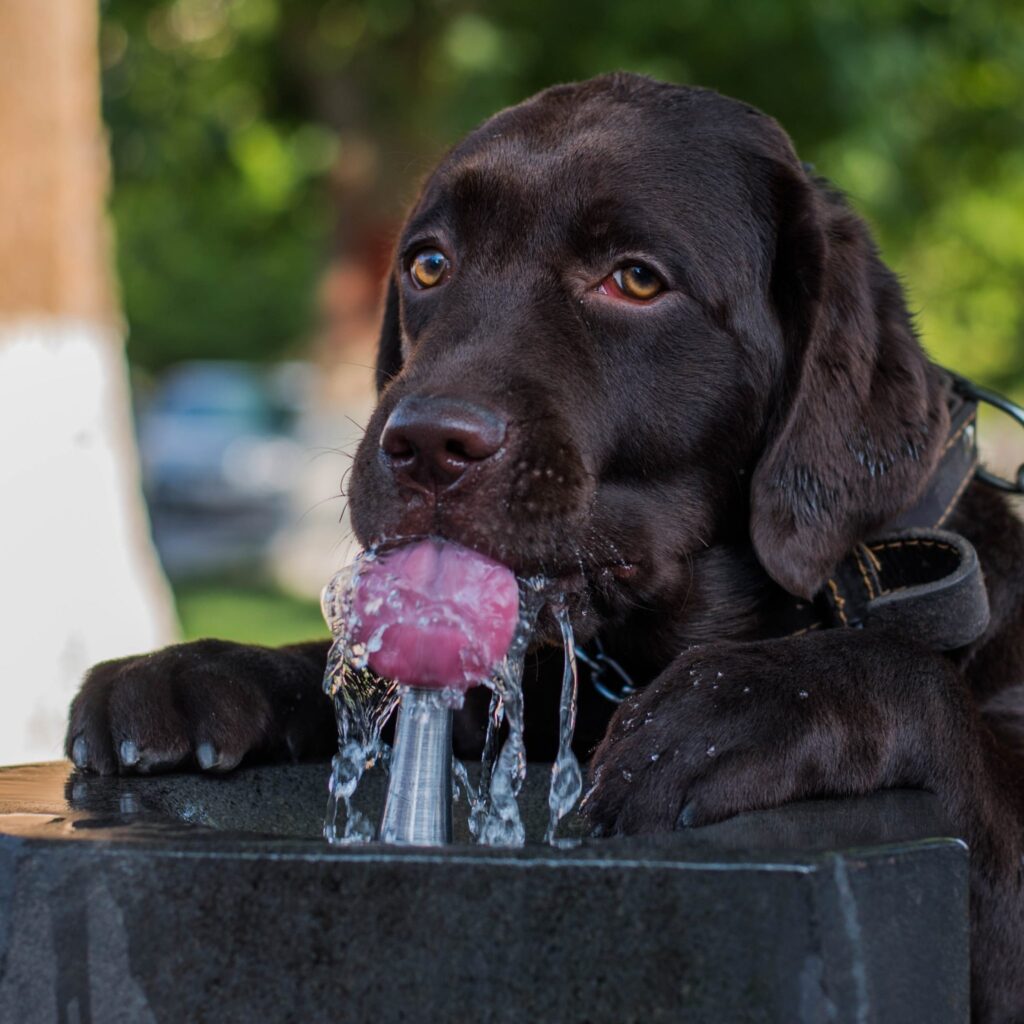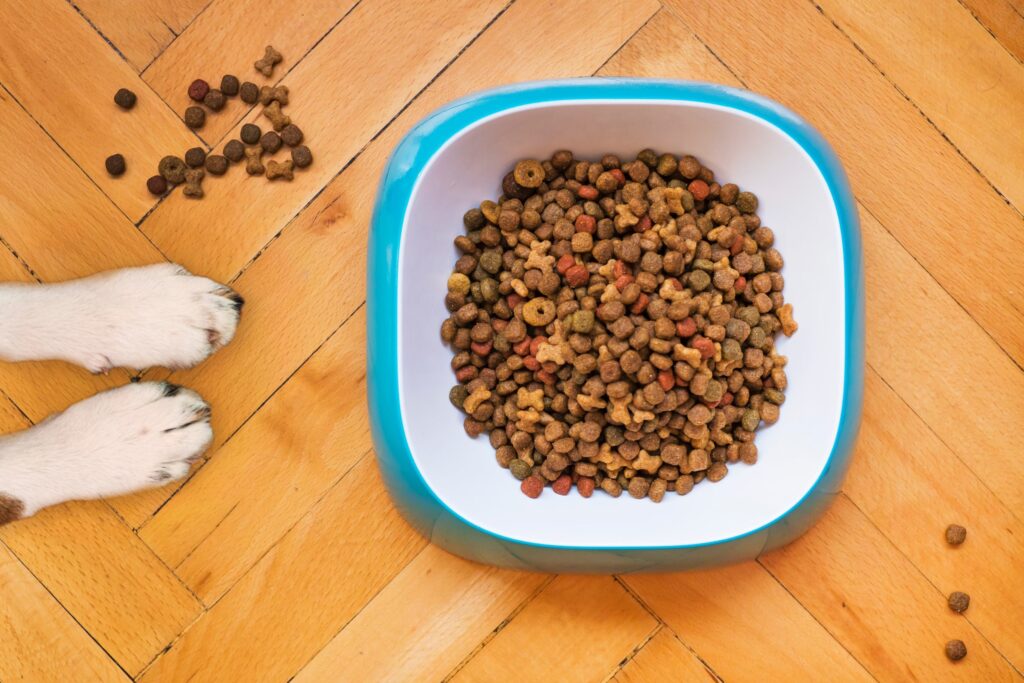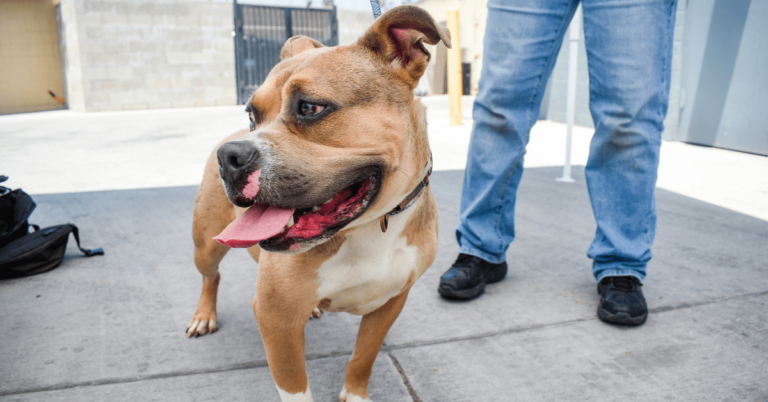Dog Vomiting 101: Why it Happens
Why Dogs Vomit and When You Should Seek Medical Attention
As a pet parent, it’s important to know why dogs vomit and when you should seek medical attention. In many cases, it comes down to your dog eating food too quickly or ingesting a foreign object.
While cats have a reputation for vomiting frequently, it’s a little more alarming when it happens to your dog. Keep reading to understand why your dog may be sick, and how you can help the next time he or she gets into something she shouldn’t.
Vomiting Yellow Foam


Dogs sometimes vomit up yellow foam. This yellow foam is a form of bile, or digestive fluid, that is produced in the liver, stored in the gallbladder, and released into the small intestine, just below the stomach. This yellow foam usually means that its stomach is empty and the bile is causing stomach irritation.
Infrequent projectile bile from your dog may be due to Bilious Vomiting Syndrome. In addition to lack of food, this syndrome may be caused by:
- A lack of fiber in the dog’s diet
- Drinking a lot of water
- Certain medications
- Allergies
- Eating fatty foods
- Eating grass
To help combat Bilious Vomiting Syndrome in dogs, try breaking up meal time into multiple smaller meals and feed your dog a low-fat, high-fiber diet. If your dog is on medication and you suspect this may be the cause, discuss it with your vet for advice.
Gastrointestinal Disorders


If your dog is frequently vomiting up this yellow bile, there is a cause for concern. If your pup’s vomit is white, meringue-like and foamy, it’s urgent.
Make an appointment with your regular vet as soon as possible if in any doubt. There are multiple conditions that affect the gastrointestinal tract, or digestive system, and can be an underlying cause. These conditions include:
- Inflammatory Disease
- Parasites
- Ulcers
- Cancer
- Foreign bodies lodged in the tract (like pieces of bones or chew toys)
- Toxic substances
- Bacterial or viral infections
- Pancreatitis
Pancreatitis usually occurs because a dog has eaten a very fatty or oily meal. The fatty food will inflame the pancreas in dogs and cause vomiting, stomach pain, and diarrhea. This will occur a day or two after eating the fatty meal.
Bile is an acidic liquid that can eat away at a dog’s esophagus if left untreated. Your dog will need to be diagnosed and treated by a veterinarian as soon as symptoms are observed.
Allergies


Allergies may be a cause of vomiting in dogs. Your dog may be allergic to their food and you don’t even realize it. Many people think, “I’ve fed my dog the same food for years, so how can that be the cause?” Dogs can develop allergies at any point in their lives, which adds to the confusion.
The most common food allergies for dogs include chicken and wheat, which also happen to be ingredients in most dog foods. Even a simple change in a dog’s environment, like moving to a new home, can trigger allergies. In addition to food allergies, skin and coat conditions can be a symptom as well. Try switching your dog’s diet to a limited ingredient food, like one containing salmon and potato.
Eating Grass


It’s an age-old question: Why do dogs eat grass only to then vomit? It is commonly thought that if a dog has an upset stomach, he or she will eat grass to cause itself to vomit, thus relieving the discomfort.
This topic is up for debate since science has not proven that dogs are self-aware to that extent. (But we know how smart dogs are, right pet parents? 😉 )
If you can, try to prevent your dog from eating grass, especially the stuff that’s not growing on your own property. Grass is sometimes treated with fertilizers, chemicals and other substances that can potentially make your dog extremely ill.
Vomiting Combined with Other Symptoms
As we mentioned earlier, if your dog is vomiting frequently, take them to the vet. Observe your dog for other symptoms so that you can report these. Other symptoms will help your vet pinpoint what the underlying cause is. Be on the lookout for:
- Diarrhea
- Blood in the vomit
- Increased or decreased drinking and urination
- Lethargy
- Lack of appetite
It’s normal for your dog to get sick occasionally, especially after eating too fast. But when dogs vomit frequently, that’s cause for concern. Err on the side of caution and take your furry family if this happens and/or if you notice any of the symptoms mentioned above. Diagnosing and treating the problem will get your dog feeling better and back to his or her normal, active, lovable self!



